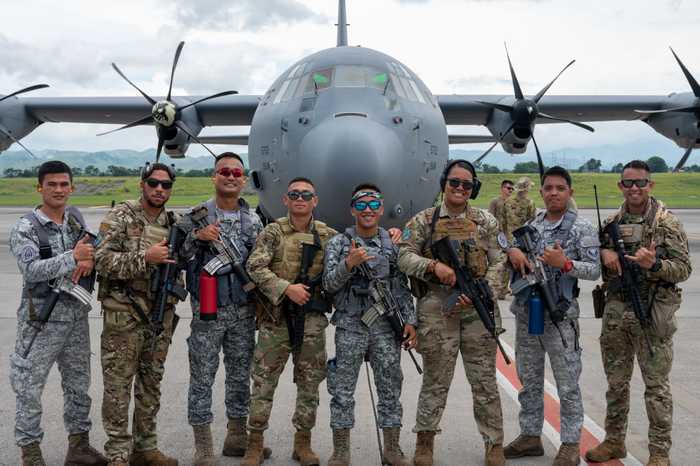Published 08:00 IST, May 18th 2024
Led by General Charles Flynn, the United States is collaborating with Pacific partners to develop a robust land forces network to deter threats.
Advertisement
Hawaii: The United States of America is collaborating with its Pacific partners to develop a robust network of land forces aimed at deterring threats to regional stability. This initiative, led by the head of U.S. Army forces in the area, General Charles Flynn aims to uphold the strategic importance of regional cooperation amidst escalating territorial disputes with China and the growing nuclear threat from North Korea.
General Flynn recently addressed the necessity of urgent collaboration among regional military leaders during the Association of the U.S. Army’s LANPAC conference in Hawaii. He highlighted the enduring relationships that have persisted since World War II and stressed that the current geopolitical climate demands a concerted effort.
Advertisement
Strategic Land Power for Positional Advantage
Flynn emphasized that land power offers a unique strategic advantage, providing a crucial positional edge that no other foreign military power can deliver. The evolving land power network is intended to protect sovereignty, defend citizens, and uphold international law.
General Flynn outlined four essential steps to ensure the success of this collaborative effort. First, he stressed the importance of reorganizing forces to achieve the most effective mix of battle-winning capabilities. Examples include the U.S. Army’s regionally focused multidomain task forces, Australia’s 10th Brigade, and Japan’s cross-domain formations.
Advertisement
Emphasis on Interoperability and Combined Warfighting
The second step involves regenerating combined joint warfighting capabilities through joint training and rehearsals. Central to this initiative is the deployment of the U.S. Army’s Joint Pacific Multinational Readiness Center (JPMRC) to various countries in the region. This mobile training centre, known as JPMRC-X, has already seen deployments in Australia and Indonesia, with plans to conduct exercises in the Philippines.

Flynn’s third step is to reapply land power to create a unified effort among allied forces. This involves extensive exercises under Operation Pathways, which foster multilateral cooperation. Flynn noted that there is an unprecedented opportunity for multilateral drills, with an increasing number of countries participating.
Advertisement
The final step involves building enduring advantages through a robust regional posture. By maintaining a continuous presence and controlling decisive points, U.S. Army forces enhance their operational readiness and strategic impact. Flynn highlighted that these efforts are crucial for achieving tactical actions with significant operational and strategic effects.
Enhanced Training and Regional Engagement
Flynn praised the growing unity and collective commitment among regional armies. He pointed out that each nation has valuable contributions to offer, and the progress made through multilateral exercises is fostering stronger alliances. The enhanced cooperation is evident in the increasing scale and complexity of drills conducted under Operation Pathways.
Advertisement

The JPMRC-X initiative has been particularly well-received, bringing high-level training closer to the environments in which regional forces operate. Flynn noted a growing demand for such training, as it offers a realistic and relevant preparation for potential threats.
Advertisement
General Flynn’s remarks underscore the critical importance of regional collaboration in maintaining stability in the Pacific. By focusing on reorganizing forces, enhancing joint warfighting capabilities, unifying efforts, and building a strong regional posture, the U.S. and its Pacific partners are making significant strides toward a more secure and stable region. Flynn's vision for a strategic land power network reflects a proactive approach to emerging threats, ensuring that allied forces are well-positioned to defend their interests and uphold international law.
06:52 IST, May 18th 2024